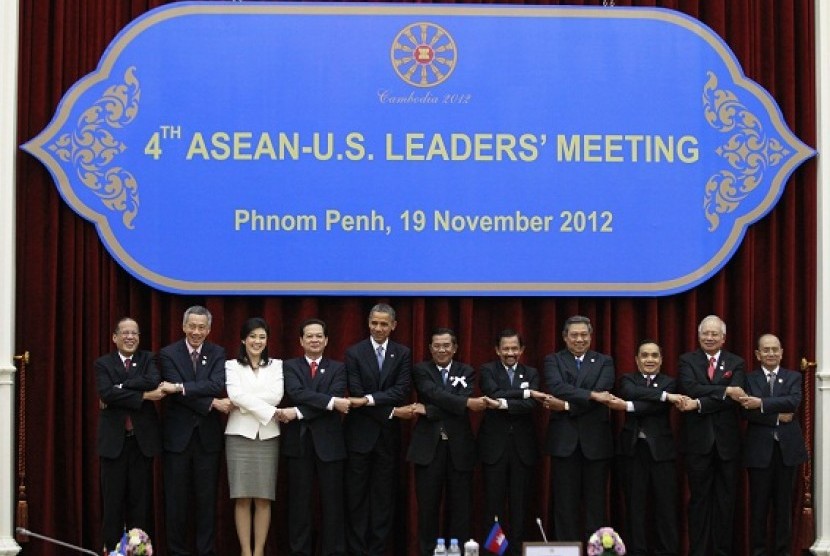REPUBLIKA.CO.ID, PHNOM PENH - ASEAN agrees to form the world's largest economic bloc involving six dialogue partners. Indonesia is trusted to lead the talks on the early 2013.
ASEAN Secretary General, Surin Pitsuwan, said ASEAN Regional Comprehensive Economic Partnership (RCEP), the initiative including India, Australia, New Zealand, China, Japan, and South Korea, would be launched as a part of the 21st ASEAN Summit in Phnom Penh, Cambodia, as reported by Arys Hilman from Republika.
The idea was emerged during the 19th ASEAN Summit in Bali. RCEP will be the biggest economic bloc in the world with population more than three billion people as it gathers 16 countries with a combined gross domestic product of more than 17.13 trillion USD, bigger than that of European Union.
Indonesian Minister of Trade Gita Wirjawan said the concept would be in line with ASEAN Economic Community. Wirjawan believes that RCEP will enhance ASEAN's bargaining power in global trade and other economic blocs. China, Japan, and South Korea, for example, have made an economic bloc, while US forms Trans-Pacific Partnership (TPP) involving 10 countries and connecting Latin America and Asia trade blocs.
Pitsuwan added that RCEP would be a big leap for ASEAN as the second biggest economic power in the world, China, involves. China prefers to join RCEP than TPP.
Postpone the deadline
Meanwhile, Xinhua reported that leaders of ASEAN had agreed to postpone the deadline to realize economic, political and social integration to the end of 2015 from the originally-envisioned Jan. 1, 2015. The extended timeframe, coming amid increasing pressure on Asia as the global economy wobbles, reflects sober assessment by the ASEAN leaders and underlines the urgent need for the body to forge closer partnership with neighboring countries so as to achieve the ambitious goal on time.


